“Unraveling the Canine Culinary Clock: Understanding the Digestive Tempo of Man’s Best Friend”
Introduction to How long it takes a dog to digest food :
Welcome to the fascinating world of canine digestion, where every meal sets the rhythm of your furry friend’s internal clock. Have you ever wondered, “how long does it take a dog to digest food?” Let’s embark on a journey through the intricate pathways of your canine companion’s digestive system to uncover the secrets behind their culinary clockwork.
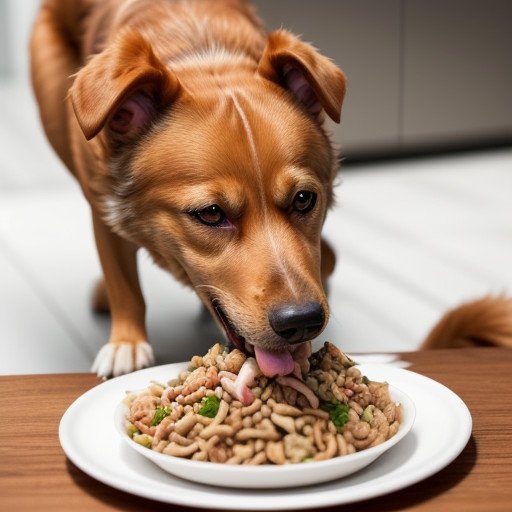
Table of Contents
Much like us, dogs rely on a complex digestive process to extract nutrients and energy from their food. From the moment they take that first enthusiastic bite, a choreographed symphony of organs and enzymes springs into action.
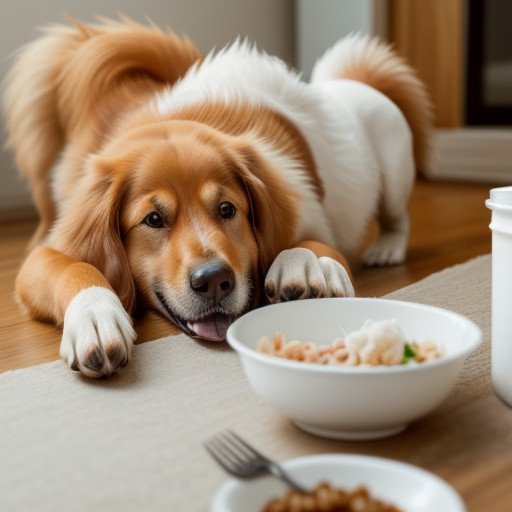
Picture this: your pup eagerly munching on their favorite kibble. Little do they know, their journey to satisfaction has just begun. As the food enters their mouth, enzymes in their saliva kickstart the breakdown of carbohydrates. Down the esophagus it travels, propelled by rhythmic contractions, making its way to the stomach.
Inside this acidic chamber, proteins are broken down while fats await their turn for digestion. Then, the real magic happens in the small intestine, where nutrients are absorbed into the bloodstream, fueling your dog’s vitality.
But the journey doesn’t end there. Waste products journey through the large intestine, where water is absorbed, culminating in the familiar outcome: a well-formed stool.
Intrigued? Stay tuned as we delve deeper into the mysteries of canine digestion and uncover just how long it takes for your furry friend to complete this remarkable process.
## 1 of 8 ## Overview of the Canine Digestive System :
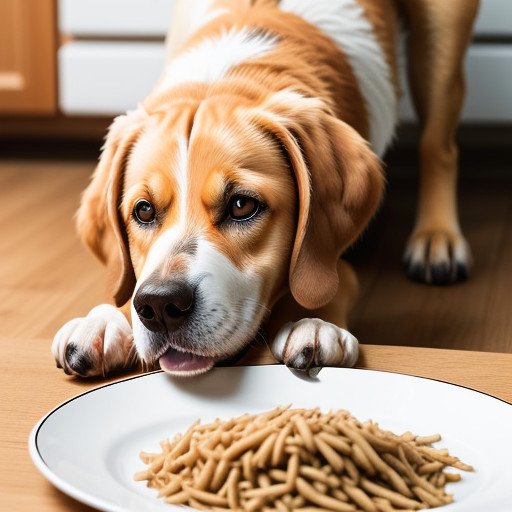
Let’s take a captivating voyage through the intricate pathways of the canine digestive system, exploring how your furry companion transforms meals into energy and vitality. Have you ever pondered, “how long does it take a dog to digest food?” Join us as we uncover the marvels within your dog’s digestive realm.
The journey begins as food enters your dog’s mouth, where chewing initiates the breakdown process while enzymes in saliva start to work their magic on carbohydrates. From there, it’s a swift journey down the esophagus to the stomach, a cauldron of acidic juices where proteins are digested, and fats await their turn.
Next stop: the small intestine, where nutrients are absorbed into the bloodstream, nourishing your pup from within. But what about the journey’s duration? It varies based on factors like food type, size, and health.
As the adventure continues through the large intestine, water is absorbed, and waste material is formed into stools, ready for departure.
Fascinating, isn’t it? Stay tuned as we unravel more mysteries, including just how long it takes for your loyal companion to complete this remarkable journey from bowl to bowel.
## 2 of 8 ## Stages of Digestion in Dogs :
Embark on a captivating exploration of the stages of digestion in our beloved canine companions, where every meal unfolds a symphony of biological processes. Curious about how long does it take a dog to digest food? Let’s unravel the journey together.
First, the culinary adventure commences in the mouth, where chewing and saliva begin the breakdown of carbohydrates, setting the stage for the digestive spectacle ahead.
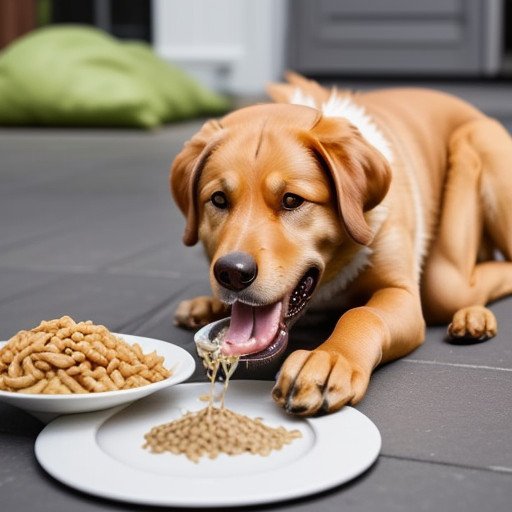
As the masticated morsels journey down the esophagus, they reach the stomach, a bustling chamber where proteins are dismantled and fats await emulsification.
Enter the small intestine, the digestive epicenter where nutrients are absorbed into the bloodstream, fueling your dog’s vitality and vigor.
But what about the timeline? The duration of digestion varies based on factors like food type, size, and individual health.
As the voyage concludes in the large intestine, water is reabsorbed, and waste material is molded into stools, ready for expulsion.

Isn’t it fascinating how nature orchestrates this intricate ballet within our furry companions? Stay tuned as we uncover more wonders, including the elusive answer to how long it takes for your faithful friend to complete this remarkable journey from bowl to bowel.
## 3 of 8 ## Factors Affecting Digestion Time in Dogs :
Embark on a journey to unravel the mysteries behind the digestive tempo of our beloved canine companions, contemplating the intriguing query: how long does it take a dog to digest food? Join us as we delve into the multifaceted factors influencing digestion time in dogs and decipher their intricate roles in the digestive saga.
1. Size and Breed:
Larger breeds often boast longer digestion times compared to smaller counterparts. Each breed may exhibit unique digestive traits, influencing the pace of digestion.
2. Type of Food:

From kibble to raw diets, the composition of food affects digestion time. Raw diets may prompt speedier processing, while complex formulations like dry kibble may linger longer in the digestive tract.
3. Health Condition:
The health status of a dog significantly impacts digestion. Gastrointestinal conditions, metabolic disorders, and overall health can sway digestion time.
4. Age:
Puppies and seniors may experience variations in digestion time influenced by developmental stages and age-related changes.
As we navigate through these factors, we unravel the intricate tapestry shaping digestion in dogs. Understanding these nuances empowers us to optimize our furry friends’ digestive health and well-being, ensuring they thrive with each meal.
## 4 of 8 ## Average Digestion Time for Dog :
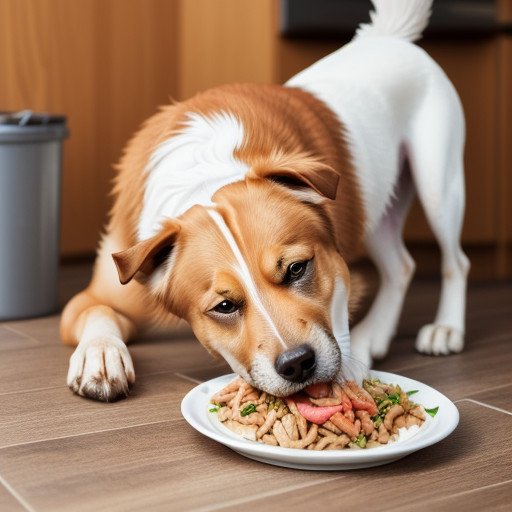
Embark on a captivating exploration into the canine culinary clock, where every meal sets the tempo for your furry friend’s digestive odyssey. Curious minds often inquire: how long does it take a dog to digest food? Let’s uncover the average digestion time for our loyal companions.
On average, dogs process food in a span of 8 to 10 hours from bowl to bowel. However, this timeline can fluctuate based on various factors like size, age, health, and diet composition.
Smaller breeds tend to have quicker digestion times compared to larger breeds, while puppies and seniors may exhibit variations influenced by developmental stages and age-related changes.
The type of food also leaves its imprint on digestion time. Raw diets may prompt speedier processing, while complex formulations like dry kibble may linger longer in the digestive tract.

Moreover, individual health and metabolic efficiency play pivotal roles, subtly shaping the pace of digestion in our canine companions.
So, while the clock ticks at an average pace, the unique blend of factors orchestrates a symphony of digestion, reflecting the intricacies of each dog’s physiology. Stay tuned as we delve deeper into the mysteries of canine digestion, unraveling its enigmatic rhythms.
## 5 of 8 ## Understanding the Digestive Process in Dogs :
Embark on a captivating exploration into the intricate world of canine digestion, where every meal sets the stage for a remarkable journey within your loyal companion’s body. Curious minds often inquire: how long does it take a dog to digest food? Let’s delve into the captivating saga of the digestive process in dogs, unraveling its secrets along the way.
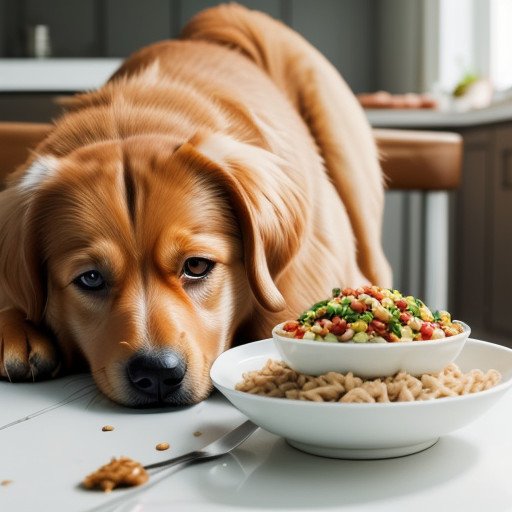
1. Mouth and Chewing:
The journey begins in the mouth, where chewing and saliva initiate the breakdown of carbohydrates, kickstarting the digestive process.
2. Esophagus and Stomach:
Food travels down the esophagus to the stomach, where proteins are digested, and fats await their turn. Enzymes and acidic juices further break down the food, preparing it for absorption.
3. Small Intestine:
The small intestine is the digestive epicenter where nutrients are absorbed into the bloodstream, fueling your dog’s vitality and well-being.
4. Large Intestine:
As the adventure concludes in the large intestine, water is absorbed, and waste material is formed into stools, ready for elimination.
Understanding the intricacies of the digestive process empowers us to support our furry companions’ health and well-being, ensuring they thrive with each meal they enjoy.
## 6 of 8 ## Signs of Healthy Digestion in Dogs :
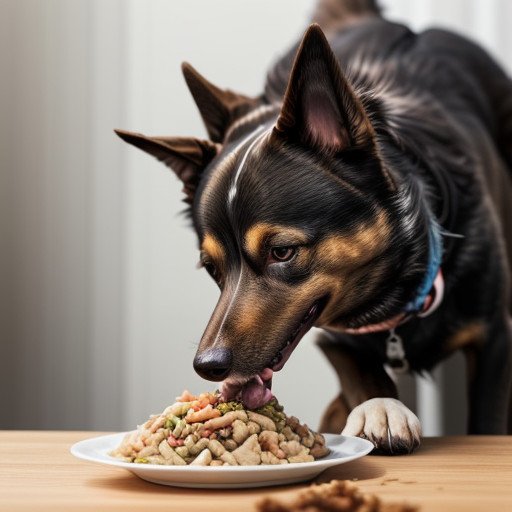
Embark on a journey to decipher the subtle cues that unveil the harmony of a dog’s digestive rhythm, pondering the enigmatic question: how long does it take a dog to digest food? Join us as we unveil the telltale signs of a thriving digestive system in our loyal companions.
Picture your furry friend: vibrant, energetic, and content. These are the hallmarks of a dog enjoying the fruits of healthy digestion.
First and foremost, observe their appetite. A healthy appetite signals a digestive system in sync, eager to process and assimilate nutrients efficiently.
Next, pay attention to their stool. Firm, well-formed stools indicate optimal digestion, while loose or irregular stools may hint at underlying digestive issues.
Observe their energy levels. A dog brimming with vitality and zest likely enjoys smooth digestion, deriving nourishment from their meals with ease.
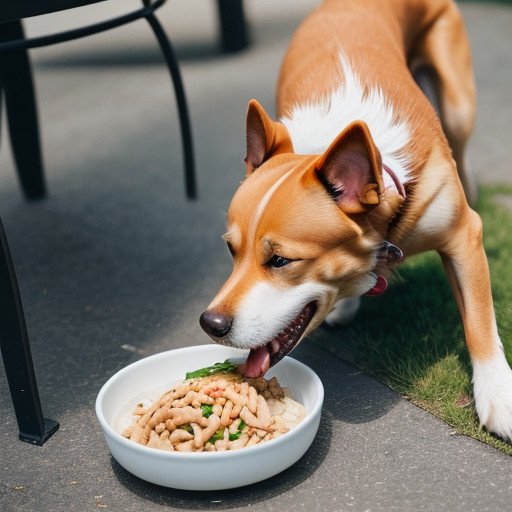
Notice their coat and skin condition. A shiny, lustrous coat and clear skin reflect good nutrient absorption, a testament to a well-functioning digestive tract.
While the average digestion time for dogs ranges from 8 to 10 hours, these subtle indicators paint a holistic picture of digestive health, offering insights into your furry friend’s well-being.
Stay tuned as we explore more nuances of canine health, unraveling the mysteries of our cherished companions’ digestive journey.
## 7 of 8 ## Common Digestive Issues in Dogs :
Embark on a journey through the nuances of canine health as we unravel the common digestive issues that may disrupt your furry companion’s well-being. Curious minds often ponder: how long does it take a dog to digest food? Let’s navigate through the challenges and solutions within our cherished companions’ digestive realm.

1. Upset Stomachs:
Imagine your pup’s discomfort after indulging in a forbidden treat or encountering a sudden change in diet. Upset stomachs can lead to vomiting, diarrhea, or a reluctance to eat. Such episodes often stem from dietary indiscretions or abrupt dietary shifts.
2. Diarrhea Dilemmas:
Diarrhea, a frequent visitor in the world of canine digestion, can disrupt the rhythm of daily life. From dietary indiscretions to infections or sensitivities, various factors can trigger this unwelcome guest.
3. Constipation Concerns:
Picture your furry friend’s discomfort as they struggle to pass stools. Constipation, often caused by dehydration, dietary factors, or underlying health conditions, can pose a discomforting challenge.
4. Gastric Dilatation-Volvulus (GDV) Horror:
This life-threatening condition, characterized by bloating, abdominal pain, and potential organ damage, casts a menacing shadow over canine health.
Navigating these digestive challenges requires vigilance and proactive care. With timely intervention and understanding, we can steer our loyal companions back to digestive harmony and well-being.
## 8 of 8 ## Tips for Supporting Healthy Digestion in Dogs :
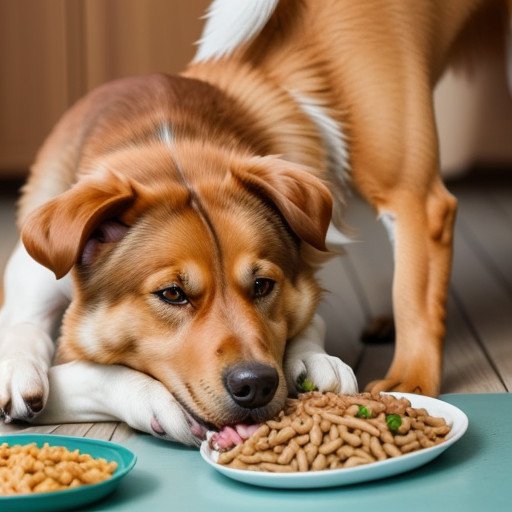
Embark on a journey to nurture your furry friend’s digestive health with these unique tips designed to support their well-being. Curious minds often inquire: how long does it take a dog to digest food? Let’s explore the ways we can optimize their digestive experience.
1. Proper Nutrition:
Provide a balanced diet tailored to your dog’s age, size, and health needs. High-quality ingredients and appropriate portion sizes can promote optimal digestion.
2. Regular Exercise:
Engage your dog in regular physical activity to stimulate digestion and maintain a healthy metabolism. Daily walks, playtime, and interactive toys can keep their digestive system in top shape.
3. Hydration:
Ensure your dog has access to fresh, clean water at all times. Proper hydration supports digestion, nutrient absorption, and overall well-being.
4. Monitoring Digestive Health:
Stay vigilant for signs of digestive issues such as changes in appetite, stool consistency, or behavior. Regular veterinary check-ups can catch potential problems early.
By prioritizing these tips, you can create an environment conducive to your dog’s digestive health and happiness. With love, attention, and proactive care, you can ensure your loyal companion enjoys a vibrant and comfortable digestive journey throughout their life.
Conclusion: Importance of Understanding Your Dog’s Digestion :
As we conclude our exploration into the intricate realm of canine digestion, one question lingers: how long does it take a dog to digest food? Beyond mere curiosity, understanding your dog’s digestion is paramount to their overall health and well-being.
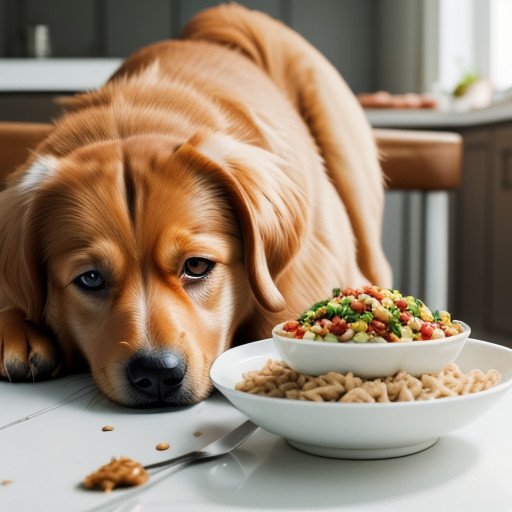
By grasping the nuances of their digestive process, you become an empowered advocate for your furry companion’s health. Recognizing the signs of healthy digestion, identifying common digestive issues, and implementing supportive measures can enhance their quality of life.
Proper nutrition, regular exercise, hydration, and vigilant monitoring form the cornerstone of digestive health management. Through these proactive measures, you can foster a harmonious digestive environment, ensuring your dog thrives with each meal.
Moreover, by nurturing a deeper understanding of your dog’s digestion, you cultivate a stronger bond built on care and compassion. Your attentiveness to their digestive needs fosters trust and strengthens the special connection you share.
In essence, the journey through your dog’s digestive system is not merely a biological process—it’s a testament to the unbreakable bond between human and canine. Together, let’s cherish and nurture this bond, ensuring our loyal companions enjoy vibrant health and happiness for years to come.
You can read this post Healthiest Dog Food
“Unraveling the Canine Culinary Clock: Understanding the Digestive Tempo of Man’s Best Friend” Introduction to How long it takes a dog to digest food : Welcome to the fascinating world of canine digestion, where every meal sets the rhythm of your furry friend’s internal clock. Have you ever wondered, “how long does it take a…
Can certain herbs or supplements aid in my dog’s digestion?

While some herbs and supplements like probiotics or digestive enzymes may support digestion in dogs, it’s important to consult with a veterinarian before introducing them into your dog’s diet.
Why does my dog eat grass, and is it related to digestion?

Dogs may eat grass for various reasons, including boredom, dietary deficiencies, or an upset stomach. While occasional grass consumption is usually harmless, frequent or excessive grazing may indicate an underlying issue that requires veterinary attention.
How can I tell if my dog has food allergies or sensitivities affecting their digestion?

Signs of food allergies or sensitivities in dogs may include gastrointestinal issues like diarrhea, vomiting, or excessive gas, as well as skin problems like itching or inflammation. Consultation with a veterinarian and a possible elimination diet can help identify and manage food sensitivities.
Is it normal for my dog to eat their own feces (coprophagia)?

While coprophagia can occur in dogs for various reasons, including behavioral, medical, or nutritional factors, it’s generally not considered normal behavior. Consult with a veterinarian to rule out any underlying health issues and explore strategies for addressing this behavior.
Can stress or anxiety impact my dog’s digestion?

Yes, stress or anxiety can affect a dog’s digestive system, leading to symptoms like diarrhea, vomiting, or decreased appetite. Providing a stable environment, regular exercise, and positive reinforcement can help reduce stress and support digestive health in dogs.
